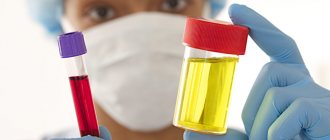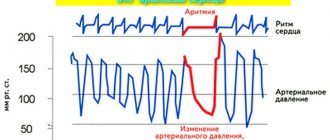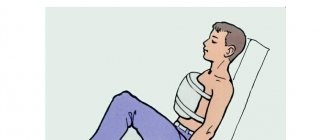How to treat the kidneys: uroseptics, citrates and drugs for chronic renal failure.
Thursday, November 25
6592
4.9
3
Content
- Causes of kidney disease
- The most common kidney diseases
- The most popular drugs for kidney treatment
- Uroseptics
- Furamag
- Nitroxoline (5-NOK)
- McMirror
- Furadonin
- Citrates
- Allopurinol
- Blémarin
- Urolesan
- Phytolysin
- Drugs for chronic renal failure (CRF)
- Kalimeit
- Renagel
Kidneys are the most important paired organ in the human body. The kidneys pump blood, clearing it of toxins, maintaining the correct acid-base balance, and reabsorbing amino acids, glucose and water. And this is not a complete list of kidney functions.
If abnormalities appear in the functioning of the kidneys, diseases may develop that are then very difficult to treat. The kidneys should be treated by a nephrologist or urologist, who will select the correct treatment regimen after examination and tests. Moreover, kidney diseases require an integrated approach: usually the doctor prescribes several drugs that affect both the causes of the problem and the symptoms, as well as restore kidney function.
Herbal medicines for the kidneys
There are a number of plants that are natural uroantiseptics, so many herbal remedies for kidney therapy have been created on their basis. Here are the most famous medicines (composition in brackets):
- Canephron (centaury, rosemary, lovage). It has a diuretic and disinfecting effect, helps with sand, kidney stones, gently removes them and relieves inflammation. Available in drops and tablets.
- Nephroleptin (lingonberry, knotweed, bearberry, propolis, licorice). Has a diuretic, analgesic, anti-inflammatory effect.
- Cyston (mumiyo, extracts of vernonia, onosma, madder, saxifrage and other plants). The drug is a local immunomodulator, improves resistance to infection in chronic nephritis, and also prevents the formation of stones.
- Phytolysin (lovage, knotweed, parsley, wheatgrass, fenugreek, onion, horsetail, pine oil, sage, orange, mint). The medicine is a natural preparation for dissolving all types of stones, and perfectly washes away sand. It is produced in the form of a paste, which is diluted in water.
- Urolesan (oregano, castor oil, carrot extract, mint, fir oil, hop extract). Antispasmodic, diuretic, acidifies urine, prevents the formation of urates.
Typically, herbal remedies are prescribed for 2-3 months, otherwise the effect may be temporary and insufficient. Other well-known herbal medicines are Fitolit, Prolit, Ginjaleling, Rowatinex.
Causes of kidney disease
More often, diseases of the kidneys and genitourinary system are diagnosed in women than in men. To choose a medicine for the kidneys, the doctor must take into account the general condition of the patient, have an accurate diagnosis and the level of progression of the disease.
There are many external and internal causes of kidney disease. Experts identify the following groups:
- Infections.
If streptococci infect the glomeruli, glomerulonephritis develops. Interstitial nephritis occurs when the stroma is affected. - Immune causes.
If a pathological process develops in the body, toxic immune complexes are released. They contribute to glomerulonephritis or nephritis. - Intoxication.
Poisoning of the body can be caused by certain drugs, heavy metals, myoglobin or free hemoglobin in the blood, and cholemia. A complication such as necronephrosis may develop. - Metabolic disorder.
This includes pathologies such as myeloma or gouty kidney, diabetic glomerulosclerosis. - Genetic predisposition.
Usually these are tubular enzymopathy, renal dysplasia, amyloidosis.
What to do with renal colic
Of course, the first and main “first aid” task is to alleviate the suffering of the patient. But before doing anything, you need to exclude the possibility of other acute diseases.
“Behind the symptoms of supposedly “typical” renal colic, more serious diseases are sometimes hidden. So, in men, unfortunately, it can indicate prostate adenoma or papillary adenocarcinoma, explains Igor Abdullaev, MD, urologist at the GMS clinic. “Therefore, even if the attack passes quickly, consult a doctor.”
Symptoms of renal colic are often similar to those of acute appendicitis and pancreatitis, intestinal obstruction, aortic aneurysm, and various neurological problems (radiculitis, for example). In men – also with prostatitis and urethritis; and in women - with gynecological pathologies (ectopic pregnancy, ovarian apoplexy, rupture of the fallopian tube, etc.). Therefore, the decision on the nature of assistance, of course, must be made by the doctor, otherwise there is a risk of harming the patient. For example, pain in renal colic is relieved by a hot bath or heating pad, but in other acute conditions with similar symptoms, these actions can lead to dramatic consequences!
The most common kidney diseases
- Cystitis.
This is the most common urological problem when the bladder becomes inflamed. More common in women. - Pyelonephritis.
The basis of the disease is inflammation that affects the kidney. Pyelonephritis is often diagnosed at a young age; women are affected five times more often than men. - Urolithiasis (urolithiasis).
With this problem, stones form in the kidneys and other organs of the urinary system. A fairly common disease. - Nephritis (kidney inflammation).
Both the entire renal parenchyma and some areas of the parenchyma can be affected. The problem can be with one or both kidneys. - Nephrosis.
Usually this is degeneration of the renal tubules. Acute nephrosis is febrile nephrosis and necronephrosis. - Nephropathy of pregnancy.
During pregnancy, the concentration of protein in the urine increases and the level of the cylinders increases. Therefore, it is important to monitor the condition of the kidneys during pregnancy. Nephropathy often goes away after pregnancy. - Nephroangiosclerosis.
This disease often develops over a long period of time and is asymptomatic until kidney failure develops. And there is also rapid development, malignant nephroangionecrosis, when renal failure occurs suddenly and the patient may die. - Hydronephrosis.
With this kidney disease, the outflow of urine is disrupted, the pelvis and calyx dilate significantly. In the early stages of hydronephrosis, a person may experience lower back pain. - Nephroptosis.
This condition is also called: prolapsed kidney, wandering kidney, mobile kidney. With nephroptosis, the kidney is too mobile; the problem occurs more often in women due to anatomical features. Nephroptosis usually develops after pregnancy and childbirth. - Glomerulonephritis.
An autoimmune disease that affects the kidney tubules and glomeruli. The disease can be either isolated or a consequence of systemic problems (for example, develop against the background of rheumatoid arthritis). Often glomerulonephritis is a consequence of streptococcal infection (tonsillitis, pneumonia, scarlet fever, purulent skin lesions). - Kidney failure.
In this condition, the kidneys partially or completely stop functioning. The water-electrolyte balance in the body is disturbed, urea, uric acid, creatinine, etc. are no longer excreted. Acute renal failure can develop while taking certain medications, due to abortion, etc. Chronic renal failure develops against the background of pyelonephritis, glomerulonephritis, gout, diabetes mellitus, abnormal kidney development, intoxication of the body, etc. - Urinary tract obstruction (UTO).
In most cases, the condition is reversible and causes kidney failure. The consequences of urinary tract obstruction depend on its duration, severity and nature (unilateral or bilateral).
Symptoms of kidney disease
Photos from open sources
Diagnostics
When collecting anamnesis, the nephrologist takes into account the duration of symptoms and the events that preceded the manifestation of the disease. During a physical examination, Pasternatsky's symptom is checked and edema is searched for. Laboratory and instrumental research data are decisive for identifying the causes of pain in the kidneys. Diagnostics includes the following methods:
- Urine tests.
In kidney pathology, several specific changes are observed: the presence of protein, cellular elements (erythrocytes, leukocytes), cylinders. To assess the concentration function, a urine test is performed according to Zimnitsky, to confirm hematuria or leukocyturia - a study according to Nechiporenko. - Blood tests.
Leukocytosis and increased ESR in the hemogram indicate the inflammatory nature of the disease. In a biochemical blood test, attention is paid to the level of total protein, albumin, and lipid profile. Assess creatinine and urea levels. - Ultrasound of the kidneys.
Sonography examines the size, contours and thickness of the renal parenchyma. According to ultrasound data, dilation of the pyelocaliceal system is established, and stones are detected in the kidneys or urinary tract. Renal blood flow is assessed using Doppler ultrasound. - Excretory urography.
The technique provides detailed visualization of the structure of the kidneys and urinary tract. Based on the results of this method, changes in the size of the organ, its deformation are revealed, and the excretory function of the kidneys is assessed. Urography is supplemented with other X-ray studies - CT, scintigraphy. - Kidney biopsy.
Invasive research data are required for the differential diagnosis of chronic glomerulonephritis, autoimmune kidney damage, and neoplasms. When performing a cytological examination of biopsy specimens, attention is paid to infiltration with leukocytes, the presence of immune complexes, and atypical cells.
Furamag
Urologists often prescribe this drug for long-term use (including for children). "Furamag" is effective in the presence of streptococcus, staphylococcus, salmonella, E. coli, Shigella, Klebsiella, Enterobacter. The drug stops the growth of pathogenic microflora or completely destroys it (it all depends on the concentration of the drug). Furamag is prescribed for almost all acute and chronic urogenital infections, as well as for prophylaxis before surgical interventions. Indications: acute cystitis, urethritis, pyelonephritis, gynecological infections, skin infections and burns. Microbial resistance to the drug develops slowly, it can be prescribed to children from 3 years of age, the tablets should be taken with a sufficient amount of water. Side effects include: skin rash, nausea, headache.
Furamag
Olaina Chemical Plant, Latvia
Infections caused by microorganisms sensitive to furazidin: - urogenital infections (acute cystitis, urethritis, pyelonephritis);
- gynecological infections; - infections of the skin and soft tissues; - severe infected burns; — for prophylactic purposes during urological operations (including cystoscopy, catheterization). from 240
5.0 1 review
747
- Like
- Write a review
Nitroxoline (5-NOK)
“Nitroxoline” is an antibacterial agent for the treatment of kidneys with antimicrobial and antifungal effects, used in patients with reduced immunity. The drug effectively fights E. coli, ureaplasma, mycoplasma, and candidiasis. At the same time, it is useless to take Nitroxoline against the background of Enterobacter, Cabsiella, and anaerobic flora. Therefore, this drug is prescribed for the treatment of the kidneys and bladder only after the corresponding pathogen has been identified. Indications: pyelonephritis, cystitis, urethritis, epididymitis, prostate adenoma or carcinoma. “Nitroxoline” does not affect the speed of reactions, and allergies very rarely develop to it. The only relative disadvantage of this drug is the need for frequent use (from 8 to 16 tablets per day).
Nitroxoline
Irbitsky Chemical Plant, Russia
Infectious and inflammatory diseases, mainly of the genitourinary tract (including pyelonephritis, cystitis, urethritis, epididymitis, infected adenoma or prostate carcinoma), caused by microorganisms sensitive to nitroxoline.
Prevention of infectious complications during diagnostic and therapeutic procedures (catheterization, cystoscopy) in the postoperative period during surgical interventions on the kidneys and genitourinary tract. from 73
635
- Like
- Write a review
Analgesic drugs
Taking painkillers is indicated for most kidney diseases, because almost all of them are accompanied by pain. If the pain is not caused by a spasm, but by an acute inflammatory process, taking antispasmodics may be useless, and then nonsteroidal anti-inflammatory drugs (NSAIDs) are recommended to the patient.
They do not affect the causes of the pathology, and temporary relief from pain and normalization of temperature should not be misleading. In parallel, it is imperative to carry out pathogenetic therapy aimed at eliminating the infection.
NSAIDs are also indicated for pain due to:
- Nephroptosis;
- Urolithiasis;
- Glomerulonephritis;
- Cysts, tumors, etc.
Taking NSAIDs leads to the cessation of the production of inflammatory mediators - prostaglandins. The pain subsides for some time, and the latest generation of drugs provide a more pronounced and prolonged analgesic effect.
For the treatment of kidneys, it is better to purchase drugs such as Meloxicam, Ketanov, Ketonal Duo, Dexalgin, Ketoprofen. For acute, unbearable pain, they are administered in the form of intravenous and intramuscular injections.
McMirror
A modern Italian drug, which today is among the top uroseptics. In addition to infectious diseases of the urinary tract and gynecological problems, it is prescribed for Helicobacter pylori infection, giardiasis and amoebic dysentery. "Makmiror" successfully fights many aerobic and anaerobic infections. Indications: vulvovaginal infections, cystitis, urethritis, pyelonephritis, pyelitis, intestinal amebiasis and giardiasis, eradication of Helicobacter pylori (in complex therapy, even if there is resistance to metronidazole). "Makmiror" is very effective, it has a wide range of applications, a low likelihood of side effects and toxic effects on the body. This kidney drug should not be used during pregnancy or breastfeeding. Side effects include nausea, bitter taste in the mouth, skin rash and itching. "Makmiror" is prescribed even for renal failure and chronic liver diseases (only under the supervision of a doctor). The only disadvantage of the drug is its high cost.
McMirror
Poly Industria Chimica, Italy
Infectious and inflammatory diseases caused by microorganisms sensitive to nifuratel: vulvovaginal infections;
urinary tract infections; intestinal amebiasis; giardiasis; chronic inflammatory diseases of the upper gastrointestinal tract associated with Helicobacter pylori.. from 627
5.0 4 reviews
1100
- Like
- Write a review
Furadonin
This is one of the most inexpensive and oldest medicines for the kidneys. "Furadonin" destroys microbes regardless of their concentration. This drug is weak against enterococci and fungi, but copes well with gram-positive flora, streptococci, staphylococci, gram-negative aerobes, E. coli, and shigella. Also, Furadonin should not be prescribed for Proteus. Indications: pyelitis, pyelonephritis, urethritis, cystitis, prevention of infections during urological examinations and operations. "Furadonin" is considered a weak medicine, so it is prescribed mainly for mild infectious processes without complications. The drug has an impressive list of contraindications, including: children under 6 years of age, serious liver diseases, heart failure, etc. Side effects: disorders of the nervous system, numbness of the limbs, goosebumps (in these cases, the drug should be discontinued) , drowsiness, dizziness, problems with breathing, hematopoietic system, cough, fever, joint pain. Also, during treatment with Furadonin, hepatitis, hemolysis and even fungal superinfection may develop. Therefore, if your doctor prescribes this particular drug for kidney treatment, be sure to ask him why he didn’t choose a more modern and safe drug.
Furadonin
Olaina Chemical Plant, Latvia
Antibacterial drug used for: Bacterial urinary tract infections (pyelitis, pyelonephritis, cystitis, urethritis), prevention of infections during urological operations or examinations (cystoscopy, catheterization, etc.).
from 26
5.0 1 review
789
- Like
- Write a review
Allopurinol
This kidney drug is prescribed to reduce the level of uric acid in the blood, and also if the patient has kidney stones made from uric acid salts (urate). Allopurinol is usually prescribed specifically to prevent the formation of kidney stones. Indications: prevention and treatment of gout and hyperuricemia (including against the background of nephrolithiasis, urate nephropathy, renal failure). Allopurinol is contraindicated in case of liver failure, acute attacks of gout, pregnancy and breastfeeding, or hypersensitivity to the drug.
Allopurinol
JSC "Organika", Russia
Allopurinol is a structural analogue of hypoxanthine.
Inhibits the enzyme xanthine oxidase, which is involved in the conversion of hypoxanthine to xanthine and xanthine to uric acid. This is due to a decrease in the concentration of uric acid and its salts in body fluids and urine, which helps dissolve existing urate deposits and prevents their formation in tissues and kidneys. When taking allopurinol, the excretion of hypoxanthine and xanthine in the urine increases. from 71
962
- Like
- Write a review
First aid for an attack of renal colic
VERY IMPORTANT: any pre-medical treatment measures are permissible only if the diagnosis is established earlier and you have no doubt about its correctness!
So, the first thing to do is call a doctor. Before his arrival, you need to try to determine the location of the pain, measure the temperature, and collect urine for analysis. After the doctor makes a diagnosis, the patient will be given an anesthetic (for example, baralgin, noshpu, cystenal, papaverine), asked to take a bath or put on a heating pad, and perhaps the doctor will additionally recommend taking another anesthetic. After this, the pain will begin to subside. The attack usually stops within two to three hours. And then further treatment can be outpatient under the supervision of a urologist: urine and blood tests, bed rest, diet, drinking plenty of fluids. Additional studies may be required - urography, for example. Important: it is better for the patient to urinate in some container to observe whether the stones pass. They need to be further studied in order to determine the composition (oxalates or urates) and, accordingly, select an effective diet for the prevention of colic.
Is hospitalization necessary? If anesthesia and thermal procedures do not help, or the patient has a repeat attack, the general condition worsens, fever begins, vomiting occurs, and immediate treatment will be required in the urology department of the hospital. The same applies to elderly patients, patients with bilateral renal colic or a single kidney.
Blémarin
This drug has been popular for a long time; it contains sodium citrate, citric acid and potassium bicarbonate. "Blemaren" can dissolve cystine, urate-oxalate stones and stones consisting of uric acid. The drug is also suitable for preventing the occurrence of calcium oxalate stones. But you need to understand that during treatment it is necessary to constantly measure the acidity of urine using special tests. "Blemaren" are effervescent tablets for dissolution in water, fruit juice, tea. Treatment should last at least 4-6 months. Contraindications include: renal failure, alkalosis, serious imbalance of electrolytes in the body.
Blémarin
Esparma, Germany
Blemaren - dissolves and prevents the formation of uric acid stones by alkalinizing urine to pH values of 6.6 - 6.8 (with urine pH in the range of 6.6 - 6.8, the dissolution of uric acid salts significantly increases).
In addition, it reduces calcium excretion, improves the solubility of calcium oxalate in urine, inhibits the formation of crystals and, therefore, prevents the formation of calcium oxalate stones. from 908
1510
- Like
- Write a review
Urolesan
In addition to treating urolithiasis, Urolesan is also prescribed to dissolve gallstones. Urolesan is sold in drops and is considered a myotropic antispasmodic, relaxing smooth muscles. Urolesan contains fir, castor, mint oils, as well as extracts of wild carrot seeds, hops, and oregano. The drug acidifies urine, stimulates its output, and has choleretic and antibactericidal effects. Indications: acute and chronic infections of the urinary tract and kidneys, uric acid diathesis, urolithiasis and cholelithiasis, chronic cholecystitis, biliary dyskinesia. "Urolesan" acts as gently as possible, the drug has almost no side effects (rarely - nausea, dizziness). But you need to keep in mind that Urolesan by itself does not dissolve kidney and bladder stones, it only acidifies the urine. Therefore, while taking this medicine, treatment with more professional means is necessary. Urolesan also has few contraindications, such as too large kidney stones, gastritis with high acidity, ulcers, individual intolerance to the components of the product and childhood.
Urolesan
Galichfarm, Ukraine; OJSC "Kievmedpreparat", Ukraine
Combined preparation of plant origin.
The components of the drug Urolesan reduce inflammation in the urinary tract and kidneys, promote increased blood circulation in the kidneys and liver, exhibit diuretic, antibacterial, choleretic effects, form a protective colloid in the urine and normalize the tone of the smooth muscles of the upper urinary tract and gall bladder. from 284
5.0 1 review
1805
- Like
- Write a review
Read also: Choosing chondroprotectors for joints What are chondroprotectors, what active substances they contain and what they treat.
Treatment of pyelonephritis
consists primarily in eliminating its cause - the underlying disease (urolithiasis, ureteral strictures, prostate adenoma, etc.). In addition, adequate antimicrobial therapy is necessary, selected on the basis of urine culture and determination of the sensitivity of bacteria to antibiotics. There are a number of additional treatments for kidney inflammation.
What's important? The patient must understand that chronic pyelonephritis is a “gentle killer” of the kidneys. And if you don’t fight it, it will probably lead you to the hemodialysis department. Modern methods of treating kidney inflammation make it possible to effectively prevent the development of this disease.
Phytolysin
“Phytolysin”, which contains phytoextracts, is often prescribed for nephrolithiasis and complex treatment of urolithiasis. You can buy “Fitolysin” in the form of a paste, which contains horsetail, goldenrod, wheatgrass, knotweed, parsley root, birch leaves, onion peels, lovage, fenugreek seeds, as well as oils (orange, pine, mint, sage). “Phytolysin” relaxes the muscles of the ureter and dissolves small stones. The drug works best in those patients who do not have kidney stones, but sand. This remedy for the treatment of kidneys has a diuretic, anti-inflammatory, antispasmodic effect, helps flush sand and small stones from the urinary tract, and reduces the crystallization of minerals in the urine. “Phytolysin” is usually well tolerated; contraindications include allergies to the components of the drug, heart and kidney failure, glomerulonephritis, phosphate urinary stones. The medicine is not prescribed to pregnant women, breastfeeding women and children. Side effects include an allergic reaction to the drug and nausea.
Phytolysin
Polfa, Poland
Phytolysin is a combined preparation of plant origin that has a diverse effect on the body.
Its effect is due to the essential oils and herbs included in the drug. Phytolysin has anti-inflammatory, antimicrobial effects; diuretic; pain reliever; antispasmodic. Used for the treatment of: infectious and inflammatory diseases of the urinary tract (as part of complex therapy); — nephrourolithiasis (as part of complex therapy). from 287
5.0 1 review
1071
- Like
- Write a review
Stones in the kidneys
Photos from open sources
How do medications work?
The choice of medication for the treatment of a particular disease will depend entirely on the symptoms, cause, type of pathology, and it should be entrusted to a doctor (urologist, nephrologist). The optimal selection of a drug or complex of drugs works as follows:
- Eliminates or reduces the etiological factor - the presence of stones, sand, bacteria;
- Has a symptomatic effect - alleviates the manifestations of the disease to the maximum;
- Normalizes the functioning of the organ;
- Prevents the disease from becoming chronic or recurrent.
Usually a whole range of medications is used for treatment. For example, to reduce symptoms and relieve inflammation in pyelonephritis, you will have to take antibiotics, antispasmodics, painkillers, and herbal remedies.
When kidney stones appear, you need to drink not only drugs that dissolve them, but also diuretics to remove sand, and antiseptics to eliminate associated inflammation.
Each group of drugs acts in its own way, here are the main ones:
- Diuretics;
- Anti-inflammatory and painkillers;
- Antibiotics, uroantiseptics;
- Herbal medicines and vitamins;
- Antispasmodics.
In complex therapy, the patient may also be prescribed corticosteroids, vascular agents, drugs to improve venous outflow, antihistamines and drugs to lower blood pressure. For oncological diseases, specific treatment is carried out under the supervision of an oncologist.
Drugs for chronic renal failure (CRF)
In chronic renal failure, kidney function irreversibly deteriorates: filtration capacity decreases, metabolic products accumulate in the plasma. And if in the initial stages of chronic renal failure the disease can be controlled with medication, then in complex cases the only way out is lifelong hemodialysis. Well, the radical treatment of chronic renal failure is a donor kidney transplant. At the initial stage of chronic renal failure, the patient does not notice any negative symptoms; usually he is worried about the problems that caused chronic renal failure: high blood pressure, high blood sugar, diabetes mellitus. Complaints arise already at stages 4-5 of chronic renal failure, when the urea level goes off scale and the acid-base balance is disturbed. Symptoms of chronic renal failure are: fatigue, swelling, pain in muscles and bones, tinnitus, headaches, loss of appetite, thirst, ammonia breath, pale skin, high blood pressure.
Medicines for kidney inflammation
Any inflammatory process in the kidneys requires urgent use of antibacterial or antiseptic drugs. Typically, uroantiseptics - drugs that work only at the local level - are used to treat chronic infections outside of exacerbation, in the initial stages of pyelonephritis.
For cystitis and urethritis, they are prescribed to prevent infection from entering the kidneys through the ascending route. Antibiotics in injections and tablets are indicated for acute pyelonephritis, glomerulonephritis, as well as for relapse of a chronic disease.
Antibiotics quickly suppress the infectious process, eliminating inflammation. Most often prescribed:
- Fluoroquinolones – Ofloxacin, Levofloxacin, Zanotsin, Tsiprolet;
- Penicillins – Amoxicillin, Amoxiclav, Flemoclav;
- Cephalosporins – Ceftriaxone, Steritsef, Cephatrin.
Of the uroantiseptics, nitrofurans (Furadonin, Furomag, Furazidin, Nifuratel) have a powerful anti-inflammatory effect. Bacteria rarely develop resistance to these drugs, so they can be used repeatedly.
Nitrofurans have few side effects, but in acute forms of pyelonephritis they will be powerless.
Kalimeit
The active ingredient of this drug for the kidneys is calcium polystyrene sulfonate. The package contains sachets of whitish-yellow crystalline powder. A suspension is prepared from this powder by dissolving it in water. "Kalimate" removes excess potassium from the blood. The product acts very gently and is suitable even for those patients who have little sodium. The dosage and frequency of taking Kalimate is determined by the doctor. The drug only affects the level of potassium, while it does not increase sodium and phosphorus in the blood, and does not decrease calcium. While taking Kalimate, blood pressure does not increase, swelling does not occur, and there is no risk of progression of heart failure. Side effects include: excessive decrease in potassium (arrhythmia, muscle cramps), rash, stomach discomfort, constipation. Contraindications: increased calcium in the blood due to sarcoidosis, myeloma, pregnancy; Kalimate is carefully prescribed to those who suffer from chronic constipation and intestinal stenosis.
Kalimeit
CJSC "R-Pharm", Russia
Indicated for: Hyperkalemia caused by acute or chronic renal failure.
from 1488
5.0 1 review
966
- Like
- Write a review
Renagel
This drug is prescribed for kidney failure, when it is necessary to reduce the level of phosphorus in the blood. "Renagel" is used both for the prevention of increased phosphorus in patients on hemodialysis and for treatment. The medicine can also be taken by patients who do not have kidney failure, but who have a high risk of bone problems and elevated phosphorus levels (dysfunction of the parathyroid glands, vitamin D overdose, Addison's disease). Renagel helps people with chronic kidney failure stop bone destruction. The drug does not increase calcium levels in the blood. Side effects include: headache, nausea and vomiting, decreased blood pressure. "Renagel" is contraindicated in children under 18 years of age, with inflammatory bowel diseases and obstruction.
Renagel
Genzym, USA
- prevention of hyperphosphatemia in adult patients with renal failure undergoing hemodialysis;
- hyperphosphatemia in adult patients on hemodialysis; - as part of complex therapy aimed at preventing bone damage in connection with kidney disease and including calcium supplements, 1,25-dihydroxyvitamin D3 or one of its analogues. from 7277
386
- Like
- Write a review
How to avoid a recurrence of the attack?
Alas, the risk of recurrence of attacks of renal colic with ICD is very high. However, if:
- the cause of stone formation has been established,
- diet selected
- inflammatory diseases are treated in a timely manner (pyelonephritis, for example);
- the patient drinks a lot of water (up to 3 l/day in the absence of contraindications);
- the diet contains the required amount of dietary fiber (plant foods that are resistant to digestive enzymes),
The formation of stones is significantly slowed down, and, accordingly, the risk of recurrence of renal colic is reduced.
If you still have questions, you can ask your urologist online in the Doctis application.









